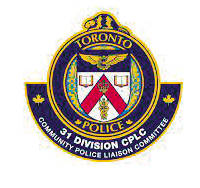 WHAT IS ELDER ABUSE?
WHAT IS ELDER ABUSE?Elder abuse is any action or inaction, occurring in a relationship where there is an expectation of trust, which causes harm or distress to an older person. It is estimated that between four to ten percent of the population are victims of elder abuse, which means up to 42,000 seniors may be victims of elder abuse in Toronto.
SENIOR SAFETY STARTS WITH YOUElder abuse may happen to any older person regardless of gender, culture, race, financial status, and mental or physical condition. Vulnerable persons are also a target for abuse due to an increasing trend encouraging independent community living. The elderly and the vulnerable are hesitant to report their victimization for a variety of reasons. In conjunction with the community agencies serving the elderly and vulnerable, the Toronto Police Service is working to encourage the reporting of abuse. Crime prevention and public awareness are necessary to reduce the fear of crime and improve the quality of life for seniors.
The goals of the Toronto Police Service regarding the abuse of elderly or vulnerable persons are to:
reduce the incidence of the abuse of the elderly or vulnerable persons in the community.
investigate all occurrences thoroughly and bring offenders to justice.
ensure the safety of victims including referrals to other community partners.
REASONS WHY ABUSE IS SELDOM REPORTEDVictim lives in fear of reprisal from the offender.
Victim wants to maintain the relationship with their family member and/or fears being removed from their home.
Victim does not recognize that they are in an abusive relationship.
Victim is unaware of their rights and available support services.
Victim is unable to report due to physical frailty, cognitive impairment, or language barrier.
Outsiders believe that it is a family matter and of do not want to get involved.
THERE ARE FOUR TYPES OF ABUSE OR NEGLECT:1. Financial - misuse of the Power of Attorney or where someone has been dishonest in the use of a senior’s money or a senior’s assets. Indicators of financial abuse include:
Elder has signed/changed documents (Power of Attorney, new will, etc) when unable to comprehend the transaction.
Lost jewelry, silverware or other valuables.
Change in level of care/absence of required aides (walker, glasses etc.
Unexplained/Irregular withdrawals from senior’s account.
Sharing an older person’s home without paying fairly for expenses.
2. Emotional/Psychological - an action or comment which would cause emotional anguish, fear or diminishing self-esteem. Indicators of emotional / psychological abuse include:
Agitation or Fear.
Depression/Denial.
Helplessness/Hesitation to talk openly.
3. Physical - any act of violence causing injury or physical discomfort (this includes sexual assault and pharmacological abuse). Indicators of physical abuse include:
Cuts, bruises, burns or welts.
Unexplained injuries or broken bones.
Poor skin condition.
Not seeking medical attention when warranted.
4. Neglect - the failure of any person having care or custody of older adult to meet his/her needs when the older person is unable to meet those needs themselves. Indicators include:
Inadequate clothing, poor skin condition or hygiene.
History of accidents or injuries and/or untreated medical condition, injury, dehydration, malnourished.
Lack of needed medical items (e.g. glasses, false teeth, cane or walker)/lack of access to medical attention.
The abuse of elderly persons is a growing concern to the Toronto Police Service due to an increasing seniors’ population and its reliance on caregivers to maintain levels of independence. It is estimated that between four to ten percent of the population are victims of elder abuse. In Toronto, seniors make up nearly 15 percent of the population, which means up to 40,000 seniors are potential victims of elder abuse.
Whether you are living in a private home or an institution, know your rights and ask a lawyer, public trustee or trusted professional for financial or legal advice.
If you choose to appoint a Power of Attorney, for either finances or healthcare, choose someone trustworthy, and understand the authorities and responsibilities you are giving them.
Familiarize yourself with your financial situation use caution if lending money to others.
Have your cheques deposited directly into your bank account.
Be aware of available support services in your community.
Avoid social isolation; stay connected and engaged.
For emotional support contact The Distress Centre at:
416-408-HELP (4357)














